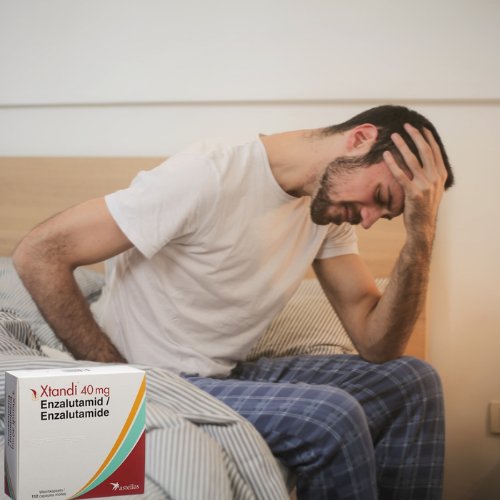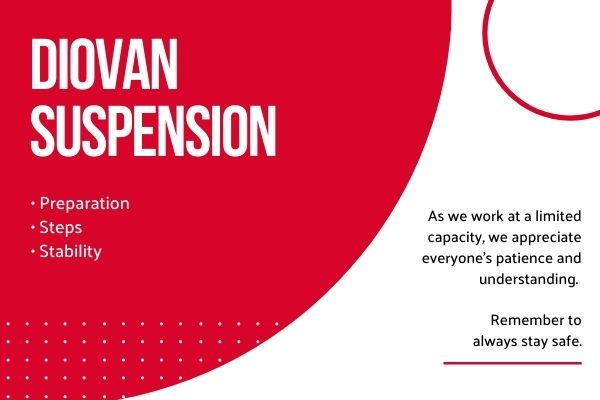How to cope with fatigue from Xtandi treatment
Introduction:
Enzalutamide is a drug that blocks androgen receptors. It inhibits their movement, DNA binding, and coactivator mobilization. This leads to cell death and reduces prostate tumor size..
By blocking the action of these hormones, Xtandi may disrupt the body’s natural energy production, leading to fatigue. Additionally, Xtandi can also cause other side effects such as hot flashes, weakness, dizziness, and drowsiness, which can further contribute to fatigue.
It is essential for patients undergoing Xtandi treatment to discuss any persistent fatigue or other side effects with their healthcare provider to ensure proper management.
Fatigue-induced by Xtandi
Although it can be highly effective, like all treatments, it can also potentially lead to side effects including fatigue. Several factors can contribute to this fatigue:
- Low testosterone levels: Xtandi works by blocking the action of testosterone on cancer cells. However, this decrease in circulating testosterone can sometimes result in lower energy levels and increased fatigue.
- Anemia: Xtandi may cause anemia (a condition characterized by a decrease in red blood cells), which can lead to symptoms such as tiredness and lack of energy.
- Pain: Chronic pain related to cancer or its treatment can significantly contribute to feelings of fatigue.
- Stress: The emotional stress associated with battling cancer may also lead to physical exhaustion and fatigue.
- Depression: Depression is common among those dealing with chronic illnesses like cancer, and one of its main symptoms is persistent fatigue or loss of energy.
- Insomnia: Difficulty sleeping or poor quality sleep, often caused by worry or physical discomfort from treatment, can exacerbate feelings of tiredness during the day.
- Other medications: Some other medications taken concurrently with Xtandi might have fatigue as one of their side effects too.
These factors do not operate independently; rather, they often interact and compound each other’s effects. For example, depression might worsen insomnia which then increases fatigue levels during the day. It’s important for patients experiencing significant fatigue while on Xtandi therapy to discuss these symptoms with their doctors who can help determine contributing factors and suggest appropriate interventions.
Low Testosteronal levels causing fatigue
Low testosterone levels can indeed cause fatigue among other symptoms. Testosterone (blocked by Xtandi) is a crucial hormone in the body that plays a key role in many functions, including energy levels.
It is recommended to consult with a healthcare provider for further evaluation and management.
Some tips to manage fatigue are:
Properly manage your time, and plan ahead
Plan your day and prioritize your tasks. Make a list of the things you need to do and rank them by importance. Do the most important or difficult tasks when you have the most energy.
Break down large tasks into smaller steps and set realistic goals. Delegate or ask for help with tasks that are not essential or too demanding.
Use these tools to mange your time, tasks and activities:
- Trello: A tool for task management and project collaboration.
- Asana: A project management platform ideal for team-based work.
- Evernote: A note-taking app that syncs across all your devices.
- Google Calendar: An easy-to-use calendar tool to schedule your activities.
- Slack: A communication platform with robust organizational tools.
- RescueTime: Software that tracks time spent on applications and websites, giving you an accurate picture of your day.
- Todoist: A task management app and to-do list features for managing daily tasks effectively.
- Zapier: Automates repetitive tasks between different apps.
- Monday.com: A Work OS where teams create workflow apps in minutes to run their processes, projects, and everyday work.
Take short naps or rest breaks when needed.
Exercise regularly and stay hydrated.
Physical activity can help you fight fatigue, improve your blood circulation, strengthen your muscles, and boost your immune system. Aim for at least 30 minutes of moderate exercise, such as walking, biking, swimming, or gardening, three times a week. Start slowly and gradually increase your intensity and duration. Drink plenty of water and fluids to prevent dehydration, which can worsen fatigue.
Eat a balanced diet and avoid caffeine and alcohol.
Eating healthy foods can provide you with the nutrients and energy you need to cope with fatigue. Choose foods that are high in protein, fiber, vitamins, and minerals, such as lean meats, eggs, nuts, beans, fruits, vegetables, and whole grains. Avoid foods that are high in fat, sugar, salt, and processed ingredients, such as fast food, sweets, chips, and soda. Limit your intake of caffeine and alcohol, as they can disrupt your sleep and make you feel more tired.
Seek emotional support from family, friends, or a counselor.
Fatigue can affect your mood and mental health. You may feel depressed, anxious, irritable, or hopeless. Talking to someone you trust can help you express your feelings and cope with stress. You can also join a support group for people with prostate cancer or fatigue, where you can share your experiences and tips with others who understand what you are going through. If you have symptoms of depression or anxiety that interfere with your daily life, seek professional help from a counselor or therapist.
Talk to your doctor about adjusting your dose or adding supplements or medications to help with fatigue.

Your doctor may be able to change your dose of Xtandi or prescribe other medications or supplements to help you manage fatigue. For example, they may recommend iron pills if you have anemia (low red blood cell count), steroids if you have inflammation (swelling), or stimulants if you have excessive sleepiness. Do not take any over-the-counter or herbal products without consulting your doctor first.
Summary of tips to manage fatigue:
- Plan your day and prioritize your tasks
- Take short naps or rest breaks when needed
- Exercise regularly and stay hydrated
- Eat a balanced diet and avoid caffeine and alcohol
- Seek emotional support from family, friends, or a counselor















1 Comment
Interesting and helpful!